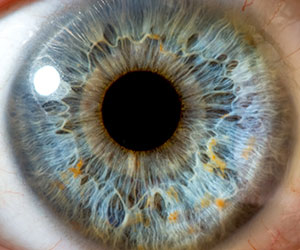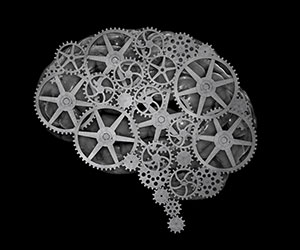Ecstasy/MDMA
According to the National Institute on Drug Abuse (NIDA), more than 18 million Americans ages 12 and older have used ecstasy in their lifetime. The drug is strongly associated with the "rave" culture and has become an increasingly popular recreational drug in the last several years.
Due to the overwhelming media attention regarding its treatment potential for anxiety disorders such as post-traumatic stress disorder (PTSD), ecstasy has gained a reputation as a "safe" drug among street users.

Ecstasy addiction and mental illness frequently co-occur. This affects treatment engagement and outcomes, as individuals who have both a substance abuse disorder and a mental illness typically exhibit symptoms that are more severe and resistant to treatment than those who have only one disorder.
If you’re ready to start down a path towards addiction recovery, call 1-888-993-3112Who Answers? to find out about addiction treatment resources in your area.
Ecstasy Addiction and the Brain

An average dose of ecstasy typically lasts about three to six hours, with subjective effects of:
- Increased empathy and openness.
- Euphoric mood.
- Increased self-confidence.
- Feelings of closeness with others.
- Increased sensory sensitivity.
- Feelings of peace and acceptance.
- New found self-awareness and insights.
Many users report signs of dependence, such as:
- Continued use despite knowledge of physical and psychological risks.
- Increased tolerance.
- Withdrawal effects, including loss of appetite, depressive feelings, fatigue, and difficulty concentrating.

Measuring long-term serotonin damage in humans is difficult to accomplish.
- Imaging studies of MDMA users have revealed changes in brain activity in the regions governing emotion, cognition, and motor function.
- Studies also have shown that heavy users experience long-term depression, confusion and memory impairment.
- However, research on the effects of MDMA on the brain and depressive symptoms has been mixed.
Drug Dependence and Mood Disorders
Drug addiction is often comorbid with a variety of mood disorders and other mental illnesses.
- People with drug addictions are more than twice as likely to suffer from mood and anxiety disorders as the general population.
- The reverse is also true. Individuals with mood and anxiety disorders are more than twice as likely to struggle with substance abuse.
The Relationship Between Serotonin, MDMA, and Mood
Serotonin plays an important role in mood regulation and researchers have hypothesized that changes in serotonin levels as a result of ecstasy use may be responsible for comorbid mood disorders associated with use.
In one study, between 19-63% of ecstasy users demonstrated elevated psychological symptoms, but the relationship between ecstasy use and psychological symptoms was no longer significant after controlling for marijuana use. This may suggest that the association between ecstasy and mood disorders is mediated by other factors, like marijuana use.
Anxiety Disorders

Individuals who use ecstasy report higher levels of baseline anxiety, nervousness, and fear, and these feelings worsen when combined with other substances.
- Research demonstrates that those who use both ecstasy and marijuana experience greater anxiety than those who use the drugs separately.
- In fact, a 2014 meta-analysis found that individuals who smoke marijuana are at an increased risk for developing anxiety disorders compared with the general population.
Presently, scientists are finding that the combination of these two drugs actually amplifies the negative impact on the brain.
Research Complications
Additionally, there are many factors to consider that limit the generalization of much of the clinical research. These include the following:
- Many of the ecstasy users who self-reported were unaware of either their actual dosage or the purity of the substance they ingested.
- As of 2007, only 3% of the ecstasy tablets in seized shipments destined for North America were actually pure MDMA, suggesting that other substances could play a role in neurological and psychological changes associated with ecstasy use.
Furthermore, many studies have shown that mental disorders actually preceded ecstasy use. Research demonstrates that 60-80% of those using ecstasy had a pre-existing mental illness.
Some longitudinal studies also have failed to show that ecstasy use can cause mood disorders and other mental illnesses. A 2006 study of ecstasy users failed to show an increase in psychological symptoms one to two years after their initial assessment.
In summary, much of the current research on ecstasy use and mental health is conflicting. Further research needs to be conducted in order to better determine the true neurological and psychological risks of acute and chronic use of ecstasy.
Regardless of cause or effect, mental illness often co-exists with ecstasy use. Mental health professionals should take this into account when treating patients.
Sources
[1] NIH: National Institute on Drug Abuse (2006). Is MDMA Addictive?
[2] Johansen, P. & Krebs, T. (2009). How Could MDMA (Ecstasy) Help Anxiety Disorders? Neurobiological Rationale. Journal of Psychopharmacology, 23(4), 389-391.
[3] Guillot, C., & Berman, M. (2007). MDMA (Ecstasy) Use and Psychiatric Problems. Psychopharmacology, 189, 575-576.
[4] Patel, A., Moreland, T., et. al. (2011). Persistent Psychosis after a Single Ingestion of "Ecstasy" (MDMA). Primary Care Companion for CNS Disorders, 13(6).
[5] NIH: National Institute on Drug Abuse (September 2010). Comorbid: Addiction and Other Mental Illnesses, How Should Comorbid Mental Illness Be Treated?
[6] Parrott, A.C. (2013). MDMA, Serotonergic Neurotoxicity, and the Diverse Functional Deficits of Recreational 'Ecstasy' Users. Neuroscience & Biobehavioral Reviews, 37(8):1466-84.
[7] Medina, K., & Shear, P. (2007). Anxiety, Depression, & Behavioral Symptoms of Executive Dysfunction in Ecstasy Users. Drug and Alcohol Dependence, 87(2-3). 303-311.
[8] MacMillan, L. (2011). Ecstasy Drug Produces Lasting Toxicity in the Brain. Research News @ Vanderbilt University.
[9] Milani, R. M., Turner, J., & Parrott, A. C. (2011). The Contribution of Ecstasy Dependence and Stress to Ecstasy/MDMA-related Psychiatric Symptoms. The Open Addiction Journal, 4:28-29.
[10] Thomasius, R., Petersen, K., et. al. (2005). Mental Disorders in Current and Former Heavy Ecstasy (MDMA) Users. Addiction. 100(9), 1310-1319.
[11] Falck R. S., Carlson, R. G., Wang, J., Siegal, H. A. (2006). Psychiatric Disorders and Their Correlates Among Young Adult MDMA Users in Ohio. J Psychoactive Drugs, 38, 19-29.
[12] Norberg, M. M, Perry, U., Mackenzie, J., & Copeland, J. (2014). MET Plus CBT for Ecstasy Use When Clients Are Depressed: A Case Series. Cognitive and Behavioral Practice, 21(1), 55-63.
[13] Schulz, S. (2011). MDMA & Cannabis: A Mini-review of Cognitive, Behavioral, and Neurobiological Effects of Co-consumptions. Current Drug Abuse Reviews, 4:1-6.
[14] Kedzior, K. K. & Lerber, L.T. (2014). A Positive Association Between Anxiety Disorders and Cannabis Use or Cannabis Use Disorders in the General Population- A Meta-analysis of 31 Studies. BMC Psychiatry. 14:136
[15] Danforth, A., Struble, C., et. al. (2016). MDMA-Assisted Therapy: A New Treatment Model for Social Anxiety in Autistic Adults. Progress in Neuro-Psychopharmacology and Biological Psychiatry, 64(4), 237-249.
[16] Degenhardt, L. & Hall, W. (2010). The Health and Psychological Effects of "Ecstasy" (MDMA) Use. Australian National Government Department of Health and Aging.